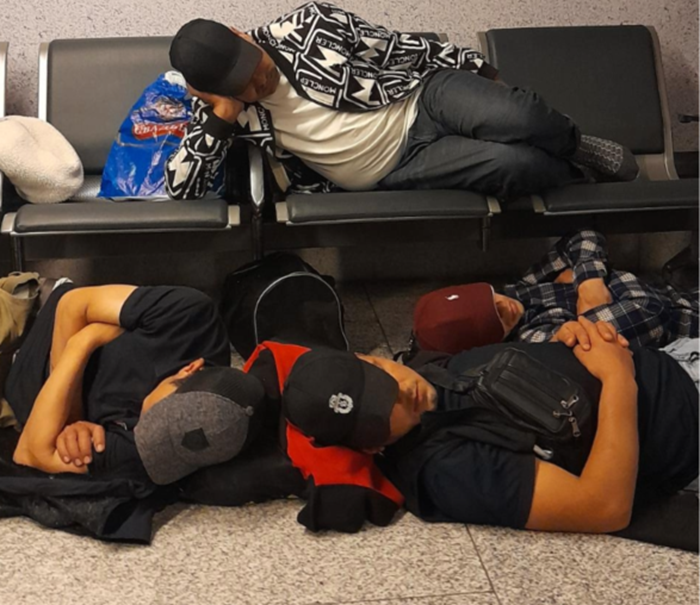Tajikistan, Moscow's scapegoat
More than a month after the attack on Krokus City Hall, the retaliation against Tajik migrants in Russia has not subsided, to the point of prompting a protest note from Dushanbe. Hundreds remain stranded at airports and at the border with Kazakhstan, but Moscow cannot afford to lose the country where its most important military base in Central Asia is located.
Moscow (AsiaNews) - After the attack on the Krokus City Hall, the living conditions of Central Asian migrants in Russia have worsened more and more day by day, and in particular those of the Tajiks, directly involved in the attack.
The repression against them led to a note of protest from Dushanbe's foreign ministry towards the Moscow authorities. For a month now there has been a succession of searches and arrests of migrants, forcibly taken away from hostels, workplaces and even mosques. Those who do not have their documents in order are quickly repatriated, and those who try to enter Russia are blocked at the border.
According to observer Abdumalik Kodirov, Russian pressure on Tajik migrants are actions "imbued with a vindictive spirit, which do not bring advantages to Moscow". At the same time, he recognizes that the indifference of Tajik youth to cultural adaptation in Russia, including ignorance of the Russian language, “is a very negative factor affecting the relations of Russians towards Tajik migrants.”
Another source of tension dates back to the beginning of Russia's war in Ukraine, which changed Tajikistan's attitude towards Russia, despite declarations of loyalty such as participation in the current Victory parade together with other heads of state Central Asians.
President Emomali Rakhmon has reiterated on several occasions that he demands respect for his compatriots, especially with respect to attempts to enlist them for the Ukrainian front, and now the consequences of the terrorist attack in Moscow bring these frictions into the open, placing the blame on the Tajiks all the former Soviets in weak support for Russia, becoming the "scapegoat" for everyone.
The activism of Tajiks and all Central Asians in the search for collaboration with European and Western countries has also made the Russians very nervous, as political scientist Shokirdzhon Khakimov believes, recalling Rakhmon's recent meetings with the British Foreign Minister David Cameron, audience in the Vatican with Pope Francis and meetings with Italian political leaders, all partners clearly aligned against Russia for the war in Ukraine.
Meanwhile, hundreds of Tajiks are blocked in Moscow airports and at the Russian-Kazakh borders, without the possibility of setting foot on Russian territory. The spokesperson of the Moscow Foreign Ministry, Maria Zakharova, responded to Tajik complaints that "these delays are due to higher control measures to guarantee security and the fight against terrorism, and are temporary in nature without distinguishing citizens based on their nationality and country of origin".
The analyst Nabi Yusupov reacted to these statements by considering them "hypocritical and unacceptable", as the fight against crime cannot be limited to an episode, even a very serious one, and the fury in particular against the citizens of Tajikistan is evident.
Furthermore, it is noted that the consequences of these attitudes will weigh on both countries: for many working migrants, employment in Russia is the only source of livelihood, and their return to their homeland will be very burdensome for the entire economy of Tajikistan, already in great pain.
For Russia itself, as Kodirov also points out, it will be difficult to do without the migrant workforce, and Moscow "cannot afford to lose an important partner in the region", so the persecution of the Tajiks should not last long. Dushanbe has always been the most pro-Russian of the Central Asian countries, and the most important military base in the entire region is located on its territory, which could become of crucial importance in a possible conflict in these areas.
13/04/2024 12:53
11/08/2017 20:05
30/03/2024 11:38







.png)










